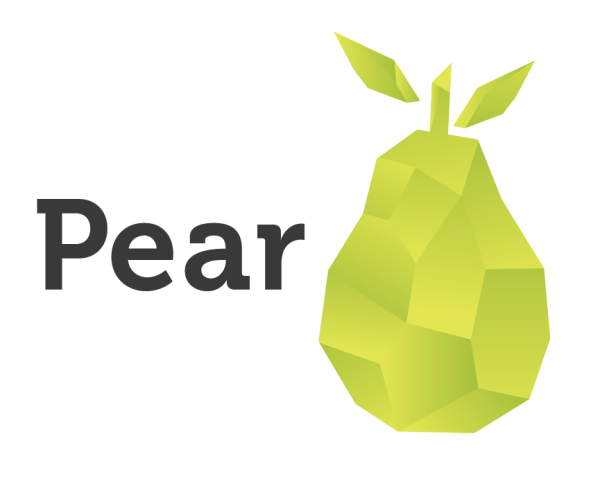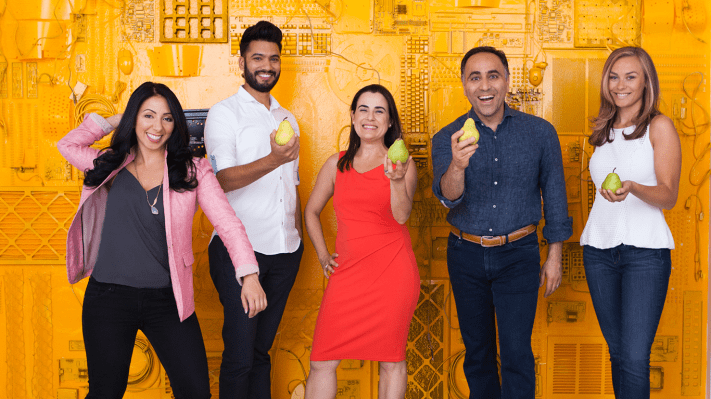Likability, intuition, and a strong work ethic is a potent combination in any business, and many in Silicon Valley think seed-stage investors Pejman Nozad and Mar Hershenson have all three in spades. They “complement each other,” says investor Alfred Lin of Sequoia Capital, who invested in the Series A round of DoorDash, the restaurant delivery company, after they seeded it.
Indeed, the duo has already become somewhat for working closely with nascent teams — many of them in their backyard at Stanford — and vetting them for other VCs, who appear to have an open invitation to their modest offices. (This editor has spied many an investor milling about during different visits, including Bryan Schreier of Sequoia Capital, Mike Abbott of Kleiner Perkins Caufield & Byers, and Brian O’Malley of Accel.)
Nozad and Hershenson have admirers at much bigger institutions, too. In fact, today — almost exactly three years after the two launched a $50 million seed-stage fund under the eponymous moniker Pejman Mar Ventures — they’re taking the wraps off a second, $75 million fund. They’re also scrapping their name and rebranding the firm as Pear.
Among Pear’s investors is New York Life Insurance, True Bridge Capital, and the University of Chicago, which also contributed capital to the firm’s debut fund. The school is back for more is that Hershenson and Nozad have “one of the most partnership-focused mindsets I’ve seen,” says Joanna Rupp, managing director of the University’s $1.1 billion private equity portfolio. “That extends to their limited partners [like us], general partners at other venture firms, and entrepreneurs.”
Certainly, Pear appears to think differently, which can perhaps be traced to its unusual roots. Nozad famously sold rugs to tech millionaires before becoming a full-time investor; one early bet was on the early smartphone company Danger, which sold to Microsoft in 2008 for $500 million. As it happens, it was through Danger that Nozad met Hershenson, a three-time entrepreneur whose husband cofounded the company.
Unlike other venture outfits that orchestrate expensive dinners with journalists, for example, Pear organizes events at its offices for cash-strapped founders and students that feature VCs and renowned CEOs as speakers. Past guests include John Doerr of Kleiner Perkins, Yahoo cofounder Jerry Yang, investor Chamath Palihapitiya of Social Capital, and Zynga founder Mark Pincus — though Nozad says a more popular attraction is a life coach who comes regularly to help founders with their personal problems.
Hershenson and Nozad also work harder than some to befriend smart college students who may not have a fully evolved idea just yet but who, in their view, have founder potential.
Take one early find, Fancy That, a startup that helped retailers with their omni-channel strategies. It was acquired by the data analytics company Palantir last year. As reported at the time, Fancy That was part of the inaugural class of what Nozad and Hershenson called their yearly, summer Garage program, which invites computer science students from Stanford to build companies in their office with no equity exchanged. (It’s now being renamed Pear Launchpad.)
Fancy That never raised money, but two of its founders have since quit Palantir and are part of Nozad and Hershenson’s summer program again.
Other initiatives of Pear include a startup competition at UC Berkeley and efforts to grow increasingly involved with students and graduates of other schools. (The firm currently has teams in its offices from Carnegie Mellon, Harvard and Berkeley, in addition to Stanford.)
It’s because the firm feels so strongly about being part of a broader community that it chose to rebrand, it says. Specifically, says Hershenson, Nozad “wanted a fruit, because fruit needs sun and soil and farmers.” (A brand consultant, Katherine Glass, ultimately pushed them toward a pear, a nod toward their first names and original brand: Pe-jman and M-ar.)

The move also reflects that many people beyond Hershenson and Nozad now make Pear work, including several new employees who’ve come aboard this year. One of them, partner Neda Blocho, was formerly vice president of programs at the education nonprofit StartX and now helps with much of Pear’s due diligence and startup support. Another partner, Ajay Kamat is a former founder who already sits on two boards on Pear’s behalf, including Skyfit, maker of an on-demand audio fitness app. A third new hire, Lily Johnson, heads up community and operations.
Either way, working so closely with other firms seems to be paying off for Pear, with many of their deals going on to raise substantial follow-on rounds from top VCs. Among them is Guardant Health, a liquid biopsy company that raised $100 million in Series D funding back in January, and whose other backers now include OrbiMed Advisors, Khosla Ventures, Sequoia Capital and Lightspeed Venture Partners.
Another company, Branch Metrics, which specializes in deep-linking technology and that raised its first $50,000 from Pear, announced a $35 million Series B round in January led by Founders Fund.
A third portfolio company, DoorDash, raised $127 million in Series C funding back in March led by Sequoia Capital.
It’s worth noting that DoorDash’s most recent financing was described as a down round, meaning earlier stakeholders likely saw their number of shares diluted.
Given broader private market trends — which have seen many startups raising either so-called down or flat rounds — it’s possible that Pear is in for more of the same, too.
Further, though Nozad is quick to note that four of Pear’s portfolio companies are currently valued at more than $500 million, the young firm doesn’t have any exits yet.
That happens to be just fine with investors for now. As notes Rupp, the University of Chicago investor, who says she’s approached by at least 100 new and existing firms each year, “It’s early to know if Pejman and Mar’s [roughly 40] deals will be successful or not. But you can see the shape of their portfolio and what their syndicate partners look like.
“Both very much supported our decision to make a [new] commitment.”
